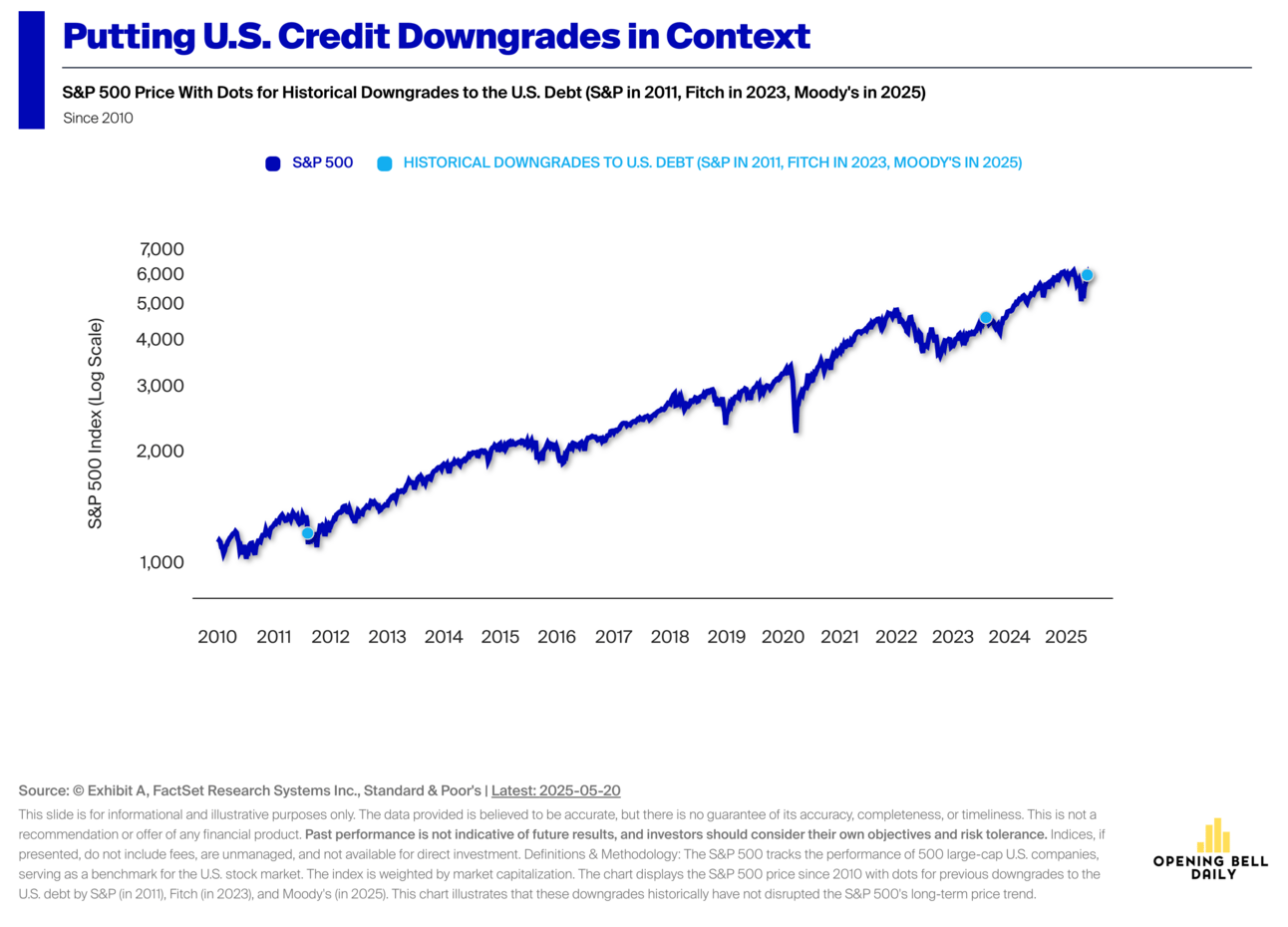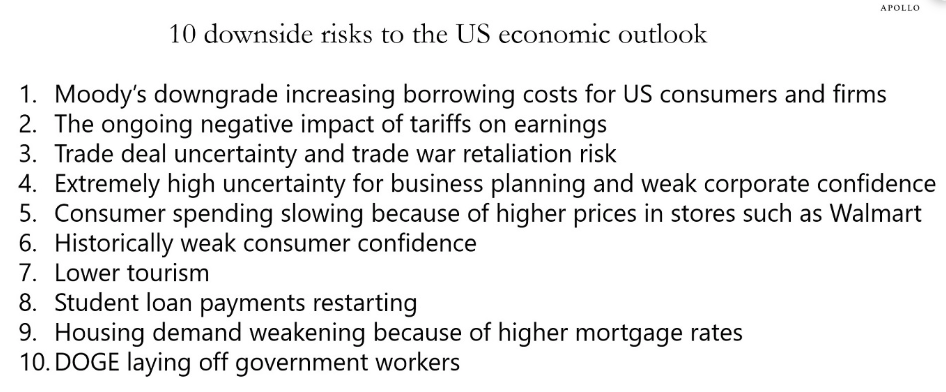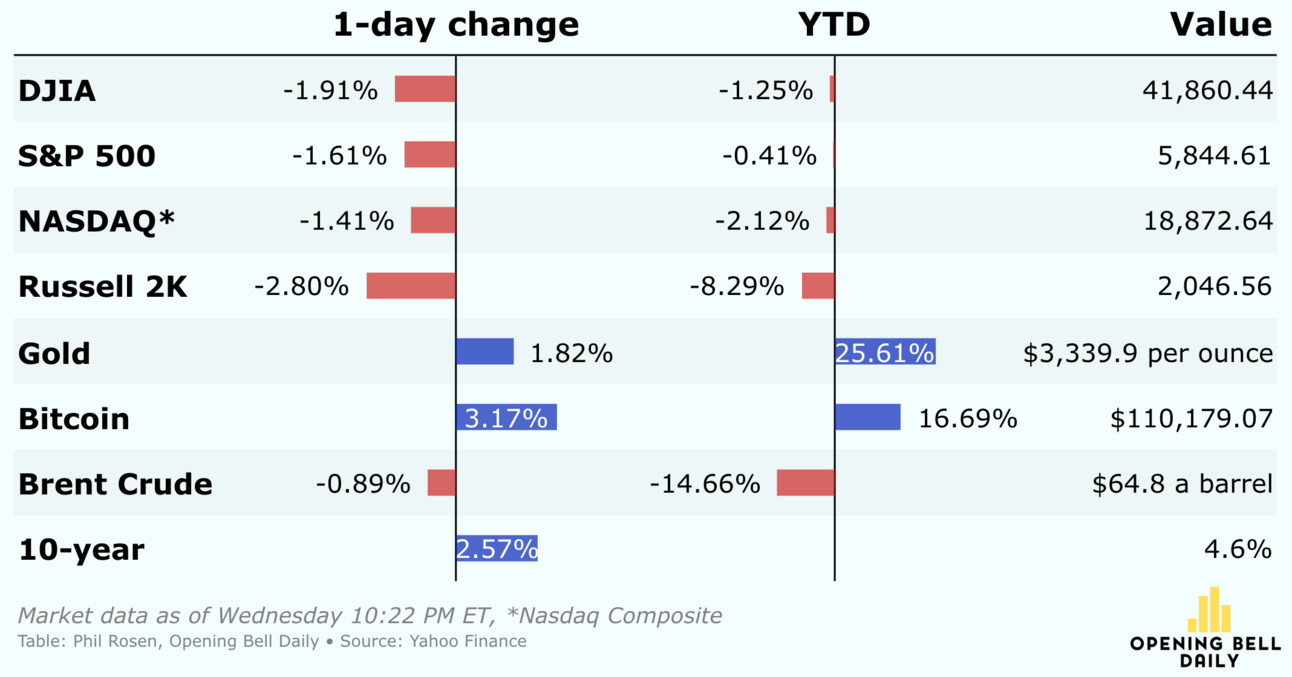Good morning! Is it just me or do markets keep getting more unpredictable? Today’s edition unpacks yet another surprise in the bond market — plus bitcoin’s record high, OpenAI’s new acquisition, Zoom and Target’s earnings, and more.
Today’s letter is brought to you by Public!
Our partners at Public.com just released a powerful new AI tool that lets you build a unique and specific index, and it’s only limited by your own creativity.
It’s called Generated Assets.
I used the tool to create an asset that includes 19 overlooked companies across four sectors that are integrating AI. Historical data shows this index would have compounded at 28% annually over the last decade.
Bond sirens
Just after lunchtime in New York on Wednesday, the stock market suddenly cratered.
There was no critical Fed commentary, policy decision, or outbreak of war. But investors dumped stocks after a botched auction for a Treasury bond no one usually cares about.
The 20-year Treasury — usually forgotten, almost always boring — suddenly mattered for markets. The US tried to sell $16 billion worth of it yet traders barely showed up.
Demand was so weak that yields had to move above 5% to drum up interest — marking the second time those levels have been hit. When bond prices decline, yields rise.
The auction produced a 1.2 basis point “tail,” the widest since December, signaling that investors weren’t willing to participate unless Uncle Sam sweetened the deal.
The 20-year yield ultimately spiked to 5.125% Wednesday after hours, while that of the 30-year hit 5.093%.
For context, 10- and 30-year debt are each more popular among investors. Their markets are far more liquid than that of the 20-year Treasury.
In any case, for months the stock market has ignored rising bond yields, but that streak ended with the auction. The S&P 500 and Nasdaq Composite’s declines mirrored the bond sell-off.
Meanwhile, the VIX — Wall Street’s fear gauge — jumped 15%.
In effect, a normally dull and vanilla corner of the bond market became a catalyst for broad risk-off sentiment.
What’s also notable is how this arrived days after Moody’s downgraded the US’ credit rating, which drew a muted reaction from equity investors.

Chart courtesy of Exhibit A
Part of this can be explained by the Fed’s reluctance to cut interest rates, the rising US deficit, and a looming tax package from Congress that could make government debt balloon even further.
Or perhaps we can look to some combination of these 10 downside risks, as highlighted by Apollo chief economist Torsten Slok in a note this week.

Source: Apollo
It might be simpler to consider the 20-year auction flop not as a moment of weak investor demand, but as a referendum on the US’s fiscal trajectory.
Big buyers are starting to question what it means to lend to the government in a world of unsustainable deficits, political gridlock, and high borrowing costs.
I’ll be pondering this question all day: What does it mean when even the most obscure happenings in the Treasury market drag stocks lower?
Market snapshot

Elsewhere
🎯Target slashed its sales outlook for the year. It missed first-quarter revenue estimates as transactions fell, and the company blamed weak consumer sentiment and backlash to its rollback of diversity initiatives. The stock dropped 5.2%. (CNBC)
📈Bitcoin touched a new record. The world’s largest cryptocurrency surpassed $109,000 on Wednesday, breaking its all-time high from January. On-chain data reflects less selling pressure and increased liquidity across crypto markets. Bitcoin is up about 25% in the last month. (Investing.com)
🤖 Apple’s original iPhone designer is going to OpenAI. Jony Ive will take on a creative and design role at the ChatGPT-maker, where he will develop consumer devices that shape the future of AI. OpenAI will acquire Ive’s company in an all-equity deal valuing it at $6.5 billion. (WSJ)
Rapid-fire
Anthony Pompliano explains taking his SPAC public and focusing on cash-flow positive businesses (CNBC Television)
Amazon CEO says tariffs haven’t dented consumer spending (CNBC)
Zoom stock beat Wall Street estimates after the market close Wednesday (IBD)
The Pentagon formally accepted a 747 aircraft from Qatar (WSJ)
CoreWeave shares surged 19% after a $2 billion debt offering (Motley Fool)
The Republican spending bill has fueled concerns of a worsening government deficit (CNBC)
More and more shoppers are struggling to repay their “buy now, pay later” loans (AP)
Home Depot isn’t sweating tariffs as much as Walmart (Opening Bell Daily)
Last thing
About me
📰 I’m Phil Rosen, co-founder and editor-in-chief of Opening Bell Daily. I’ve published books, lived on three continents, and won awards for my journalism, which has appeared in Business Insider, Fortune, Yahoo Finance, Bloomberg and Inc. Magazine.
I write our flagship newsletter to prepare you for each trading day — unpacking markets, economic data and Wall Street with analysis you won’t find anywhere else.
Feedback? Reply to this email, ping me on X @philrosenn, or write me directly at [email protected].


